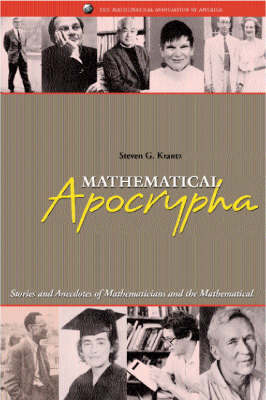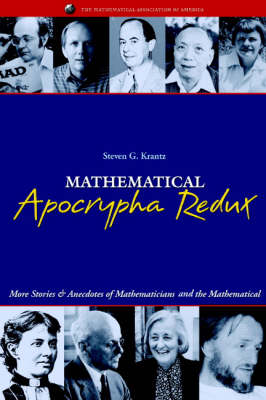Spectrum
3 total works
This book contains a collection of tales about mathematicians and the mathematical, derived from the author's experience. It shares with the reader the nature of the mathematical enterprise, and gives a glimpse of mathematical culture. The book brings legendary names to life, and shares little known stories about names we have heard all our lives. The book is written in a brisk and engaging manner and it also includes a number of attractive photographs and illustrations.
This book is about the concept of mathematical maturity. The goal of a mathematics education is to transform the student into a mathematically mature individual who treats mathematical ideas analytically and can control and manipulate them effectively. At the heart of the endeavour to solidify this loosely defined but widely acknowledged concept is the privileged position of mathematics as a pure science. The book provides background, data and analysis for recognising and nurturing aspects of mathematical maturity, such as the ability to analyse and communicate abstract ideas, criticise and construct proofs, and move from intuitive to rigorous reasoning. It turns the idea of mathematical maturity from a topic for coffee-room conversation to a topic for analysis and serious consideration. This book will be of interest to anyone, at any level, who wants to be an effective mathematics teacher.
A companion to Mathematical Apocrypha, this second volume of anecdotes, stories, quips, and ruminations about mathematics and mathematicians is sure to please. It differs from other books of its type in that many of the stories are from the twentieth century and many about currently living mathematicians. A number of the best stories come from the author's first-hand experience. The writing is lively, engaging, and informative. There are stories the reader may wish to share with students and colleagues, friends, and relatives. The purpose of the book is to explore and to celebrate the many facets of mathematical life. The stories reveal mathematicians as intense, human, and sympathetic. They should resonate with readers everywhere.


